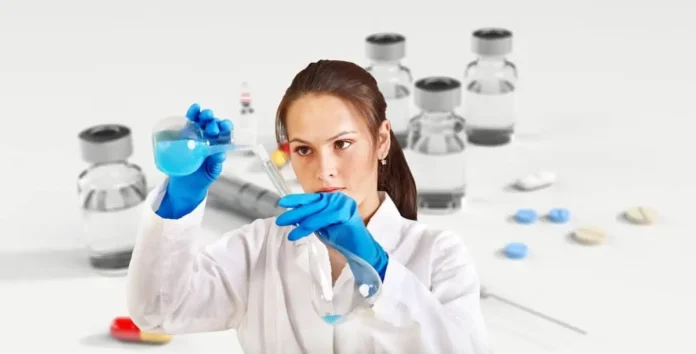Last Updated on January 14, 2024 by The Health Master
New Delhi: Just two weeks after the Indian Council of Medical Research allowed private labs to test for coronavirus, the first made-in-India kits hit the markets.
Mylab Discovery Solutions, a biotech company in Pune, sent its kits to 150 diagnostic centres in Pune, Mumbai, Delhi, Goa, and Bengaluru. In an interview to the BBC, Mylab’s research and development chief, Minal Dakhave Bhosale, said that the kits were designed in “record time” and took merely six weeks instead of the standard three or four months.
Mylab was the first in the country to receive a commercial clearance from the Food and Drug Authority (FDA), the Central Drugs Standard Control Organisation (CDSCO) and the National Institute of Virology (NIV).
A race against time
For Bhosale, it was a race against time, both professionally and personally. Mylab had only begun work on the kits in February, and on 18 March, just a day after the ICMR’s announcement allowing private labs to test for Covid-19, Bhosale managed to submit the kit for evaluation to the NIV.
Later in the day, she submitted the proposal to the FDA and CDSCO, an hour before she herself was taken to the hospital to give birth to her daughter. “It was an emergency, so I took this on as a challenge. I have to serve my nation,” she said to the BBC. The hard work paid off. “If you carry out 10 tests on the same sample, all 10 results should be the same…Our kit was perfect.”
Also read: First aid kit at home for the 21-day lockdown
India’s low testing rates are worrying
The decision to allow private laboratories to test for Covid-19 came amid the growing criticism that India is not testing enough people. With only 6.8 tests being conducted for every 1 million people, India has one of the lowest testing rates in the world.
In the days following ICMR’s announcement, the government approved the sale of 18 diagnostic kits by private companies last week. India has so far reported a total of 873 coronavirus cases. The infection has claimed 19 lives so far. The government also approved 12 antibody rapid tests. Known as a serological test, the antibody rapid test employs a different method that the usual RT-PCR test to diagnose Covid-19. It aims to determine even whether a person had been exposed to the virus earlier.
Approvals for antibody tests were granted to BioMednomics (USA), Getein Biotech (China), Sensing Self Ltd (Singapore), Hangzhou Biotest Biotech (China), AmonMed Biotechnology Co (China), Beijing Tigsun Diagnostics Co Ltd (China), Biomaxima (Poland), CTK Biotech (USA), Hunan Lituo Biotechnology Co (China), Vivacheck Lab (China) and Wondfo (China). Government laboratories are also using RT-PCR probes, crucial in the detection of SARS-CoV-2 genome, that have been procured from the U.S.


